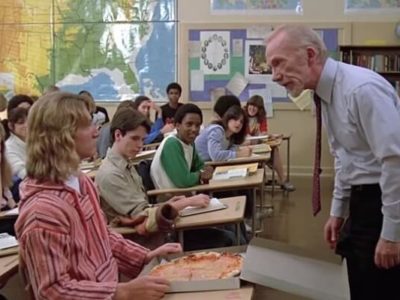The days of drawn out, doodle-inducing lectures are behind you, and damn it if there isn’t a first row seat in front of an interesting, career-relevant professor calling your name. When you reach the point in your college career where this thought becomes a penetrating frustration, the days of tedious lectures have probably just passed. A series of more intensive, major-oriented classes await, grinning like the devil, in the next semester of your education. Upper-division classes should inspire fear but also optimism in the blossoming student because the more interesting and relevant courses become, the more difficult they are to complete.
When taking an upper-level class, first off, relax–but not all day. “Students usually come in at the beginning of the semester when they want to know about a certain professor’s class or a specific class–the harder ones,” University of Texas advisor Marilyn Gomez said. “Other than being more difficult, the way to approach schoolwork is usually the same.” Certainly assignments become more challenging in more demanding classes, but getting acquainted with upper-division classwork involves allocating much more time to your studies than in previous courses. Skimming through required readings and turning in half-assed assignments results in poor grades in upper-division classes.
Even more, turning in sub-par work leaves a poor impression on professors and classmates. Professors can be influential figures in your years as an upperclassman because they’ll help you get internships or create relationships with other professionals in your field. Your classmates are also looking to work in the same field as you, and their knowledge of your ability to complete tasks will affect how they rate your performance in group projects. Plus, who knows where they’ll be five years after graduation? Positive perceptions are a #majorkey for networking.
Now that you’ve finally come home after your first upper-level class, you realize you have three hours of homework today. That means it’ll be 8 p.m. before you can do fun stuff. Nope, looks more like four hours. So maybe 9 p.m. But maybe you can get away with just two hours if you bullshit that British Lit essay. Maybe you can, but don’t be surprised when your teacher spots your shoddy work and grades it accordingly.
Instead of taking time to think of ways to circumvent daunting assignments, just do them. Hard work will be worthwhile when you notice your grades start inching further away from the lazy student’s borderline-A. “Definitely don’t play Star Wars all day after class. Maybe for an hour,” UT teacher’s assistant Kyser Littlefield said. The homeboys probably want to run around campus after class to play Pokemon Go, and classwork might be able to wait until later, but all of a sudden it’s 1 a.m. and later will be too late. The Pokedexes of your hardworking peers are nowhere near Pokemon master levels of filled. Get your work done and understand the parameters of it in order to avoid your workload crashing down on you when it’s too late. Any less effort than that will negatively affect your grades and your standing among peers, educators and even future employers.
If you have problems understanding coursework, or have difficulty completing assignments, attend office hours. “Come see us,” UT English professor George Slyvester said. “We won’t bite you.” College professors have seen an endless array of frustrated, curious and needy students. “The students who come to office hours usually do the best,” Sylvester said. It’s the professors’ jobs to help students, but if they aren’t available, teaching assistants can lend a helping hand. “I get hit up via email pretty often, sometimes [at] strange hours,” Littlefield said. “I try to get to all of them.” TAs are generally graduate students in the same field as you. Hell, they’ve even taken the class you’re in right now, so they know exactly how to succeed. They’re well versed in their field, and they’re approachable. Most of them are still in their 20s too. If you feel intimidated by professors, seek out a TA.
Take advantage of more intense coursework by approaching professors and TAs. They know you’re busy and have questions, and your engagement and relationship with them enriches your time in upper-division courses. The more relaxed you feel around your professors and the more you keep up with your work, the more comfortable your class will become. Now you can become a model student and make an impression on your professors that’ll make them think about you when employers start reaching out for employee recommendations. If you can keep up with your workload and reach out to your professors and TAs in a timely way, upper-division classes will be a breeze.



















